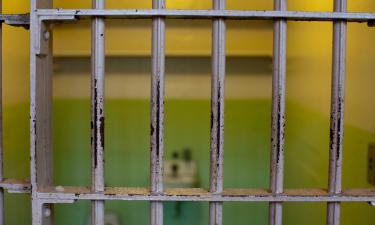Russia Ever More Active in APEC
 The Asian-Pacific Economic Cooperation forum (APEC) is a predominantly economic organisation
The Asian-Pacific Economic Cooperation forum (APEC) is a predominantly economic organisation
A spectacular change has come to it now. Russia was new to the APEC a mere year or two ago, when President Vladimir Putin talked politics to it on behalf of his nation, with an emphasis on combating terrorism. Other APEC leaders, though giving politics their due in passing, concentrated on basic topics in the organisation's competence: prospects for a Pacific free trade zone, easier business terms, assistance to developing countries of the region as they catch up with leading states, etc.
The latest APEC summit has just finished in Bangkok, Thailand. US President George W. Bush firmly took the initiative in debates on terrorism. He carried things so far that many APEC members are saying he was trying to distract the organisation from its basic goals. Meanwhile, Russia has got a firm footing in APEC by tackling economic topics, and it appears to be savouring negotiations on commercial and other economic issues.
The World Trade Organisation was all but dominated the Bangkok summit given the failure of the talks in Mexico's Cancun. However, Russia's business circles think that the country is too weak to join the WTO now. In fact, Russian entrepreneurs are happy that the talks are in a deadlock. Russia was too quick to plunge into the free market in 1991-92, believes Sergei Veremeyenko, International Industrial Bank President and AVAS member. Since China, which has already joined the WTO, and never conceals its intention to subsidise farming, with Japan, the USA and Europe doing exactly the same, Russia, too, ought to negotiate on the matter, he argues. The banker sees APEC as an excellent place for such talks.
As President Putin was addressing the Bangkok business forum, he emphatically referred to Sakhalin. Speaking about Asian energy security, he emphasised that Russia could export the liquefied natural gas from the island to the United States. Steve McVeigh, Chief Executive Officer of the Sakhalin Energy Investment Company, thanked the President for the help. Meanwhile, however, Japan appears to be Russia's principal client to account for a third of Sakhalin gas exports. South Korea will, most likely, receive another third.
Few took notice of one Bangkok event, perhaps, hi-tech venture investors alone. This was the inauguration of Russian investment projects on the APEC investment market. Russia was the only APEC country to put on such a presentation this year. Among others, it was advertising an unprecedented microsatellite technological breakthrough. Russia possessed technologies of this kind before. However, they are being aimed at potential clients now that Russia has gained experience on Pacific markets.
The matter involves not only experience. Russia has not merely grown accustomed to APEC, but is playing a new part there. Along with Japan, the USA, China and certain other countries, it has the honourable role of Pacific economic progress leader. President Putin told the business forum that economic growth would be 6% this year. The figure had been included in the main APEC statistics even before his address, alongside news of an economic surge in Japan and the United States, and a continuing boom in China.
The APEC Secretariat published the results of a survey the Global Business Policy Council-AT Kearney company conducted among bosses of the biggest Pacific area-based corporations. According to the results, China led Asia and the world for the most investment-attractive economy. Russia modestly ranked eighth. Russia, however, was on the list one of the two countries making the greatest progress, as last year it was in 17th place. The other, India, also leapt nine points.
In the final analysis, this is what brought Russia its new and more prominent status in APEC.
Dmitri Kosyrev, RIAN
Subscribe to Pravda.Ru Telegram channel, Facebook, RSS!




